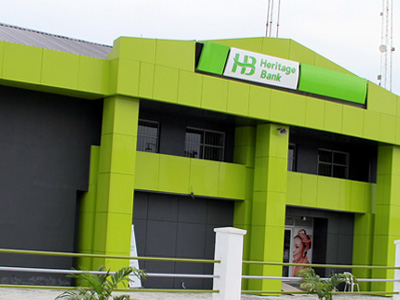
The share price of Zenith Bank Plc, on Friday, closed 45 kobo or 2.32% up at N19.85 each, in apparent investor reaction to the audited financials for the year ended December 31, 2019, highlights of which included the marginal growth in earnings income and profit, due to the harsh operating environment and the impacts of various regulatory actions in the past half-year within Nigeria’s banking and financial markets.
The board, however, was still able to retain dividend payment of the previous year, proposing a N2.50 per share, just like in 2018, after paying an interim of 30 kobo. Closure of register of shareholders for the payment is March 10, while the payment is billed for March 16, 2020, same date as the annual general meeting where shareholders will approve of the payout.
One major revelation of the score-card seems to be the need for the board and management to diversify Zenith Bank’s operations outside of Nigeria such that it is not heavily impacted by the vagaries of operating within a single country.
As a result of the increased loan to deposit ratio of banks in the country, as well as the significant rise in the Cash Reserve Requirement, among others, the bank’s gross earnings growth slowed down to a marginal 5.06% from N630.344bn in the comparative period of 2018, to N662.251bn. The group’s Nigerian operation continues to account for the lion’s share of N575.078b n, representing 86.83% of the total; followed by other parts of Africa, N68.232bn, or 10.3%.
Interest income dropped by 5.57% to N415.563bn in 2019 from N440.052bn, the bulk of which was from interest on customer loans and advances, which fell from N273.179bn to N232.946bn; followed by revenue from treasury bills trading of N81.108bn, compared to the previous N100.537bn; while those from government and other bonds climbed from N52.45bn to N68.497bn.
Interest and similar expenses rose marginally by 2.82% from N144.458bn to N148.532bn; leaving a net interest income of N267.031bn, 9.66% less than the N295.592bn reported in 2018.
Impairment loss on financial and non-financial instruments climbed 30.81% up from N18.372bn to N24.032bn, resulting in net interest income after impairment loss on financial and non-financial instruments of N242.999bn, as against the N277.222bn reported in the prior year.
The group reported a 22.36% growth in net income on fees and commission at N100.106bn, as against the N81.814bn of 2018; the biggest jump being that of the fee and electronic products, which soared by N22.089bn or 108.16% from N20.422bn in 2018 to N42.511bn; followed by credit-related fees of N21.879bn, from N19.309bn.
Trading gains for the period jumped by 46.88% from N81.814bn to N117.798bn. Other operating income fell by 20.79% from N17.947bn to N14.216bn.
Personnel expenses for the period inched 13.57% up from N68.556bn to N77.858bn; just as operating expense dropped by 6.12% from N137.897bn to N129.453bn; resulting in profit before tax of N243.294bn, 5.01% better than the N231.685bn reported in the prior year.
Income tax for the year stood at N34.451bn, as against the previous N38.261bn; resulting in net profit of N208.843bn, which was better by 7.97% than the N193.424bn reported in the previous full-year. The net profit, therefore, translated to earnings per share of N6.65, as against the previous N6.15 from which the directors are offering a total of N2.80 each.
A breakdown of the figure showed that net profit from Nigeria stood at N183.69bn or 87.95%
On the balance sheet, total assets for the period N6.346tr, as again the previous N5.955tr, driven by the N2.305tr of loans and advances, which climbed from N1.823tr; even as total liabilities increased marginally from N5.139tr to N5.404tr, lifted by the N4.262tr, up from N3.69tr. Shareholders’ funds climbed 15.46% up from N815.751bn to N941.886bn.













